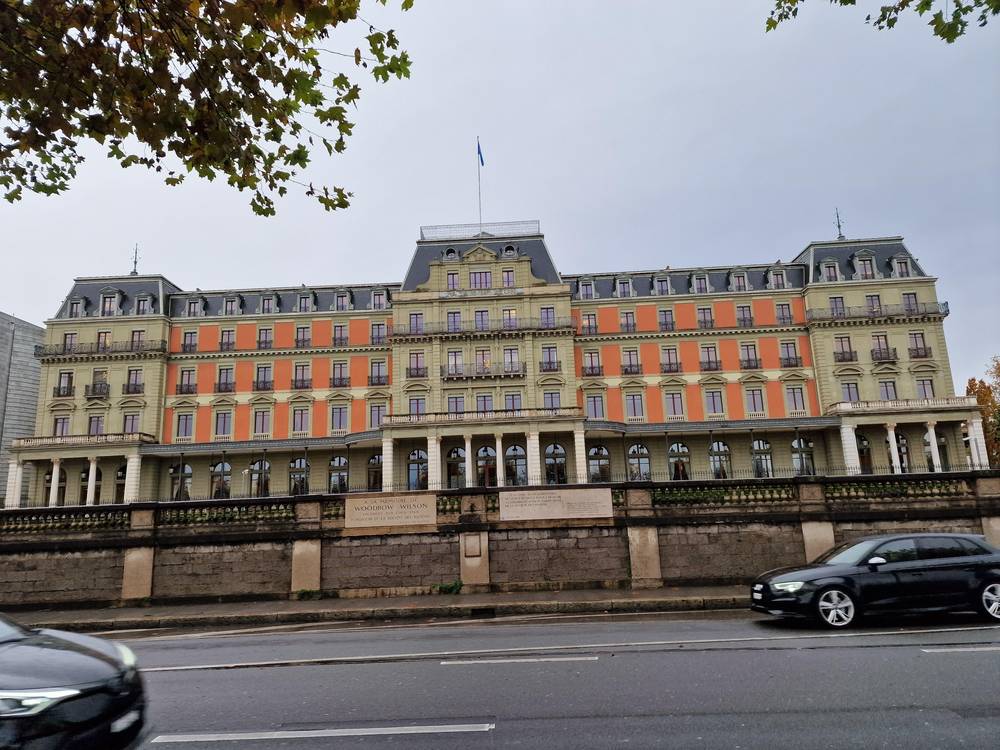In Geneva on 14 November 2023, Deputy Ombudsmen Ivan Šelih and Miha Horvat, in the name of the Human Rights Ombudsman of the Republic of Slovenia, participated at the 78th meeting of the Committee Against Torture (CAT), founded on the basis of the Convention against Torture and Other Cruel, Inhuman or Degrading Treatment or Punishment. At the meeting, the Committee discussed the fourth periodic report of the Republic of Slovenia on the implementation of the mentioned convention submitted by the Republic of Slovenia (with the submission of which the country has been several years late).
The CAT has several times emphasised the significance of information related to the implementation of the convention provided to it by National Human Rights Institutions (NHRIs) or National Preventive Mechanism (NPMs). In the Republic of Slovenia, the bearer of both mentioned mandates is the Human Rights Ombudsman of the Republic of Slovenia – the institution has been carrying out the competences and tasks of the National Preventive Mechanism according to the Optional Protocol to the Convention since 2008, while at the beginning of 2021, as the only Slovenian institution it achieved the highest possible status (status A) according to the Principles Relating to the Status of National Human Rights Institutions (the so-called Paris Principles), adopted by the General Assembly of the United Nations. This year, the Ombudsman has on its own initiative forwarded to the CAT its own alternative report, in which it highlighted its own critical findings about the implementation of the mentioned Convention. Upon the invitation to the meeting, the Deputies orally presented some additional details and then answered the questions of its members at the Committee’s plenum.
Since the CAT was particularly interested in this even after the previous periodic report of the state, Deputy Ombudsman Horvat initially presented the situation relating to the strengthening of the position of the Ombudsman institution in the state (especially legislative changes, i.e. the amendment of the ZVarCP-B from 2017, based on which the Council for Human Rights as the consulting body of the Ombudsman and the Centre for Human Rights were founded, while the NPM was appointed permanent internal organisational unit) and data about human and financial resources of the institution in the last few years. Deputy Ombudsman Šelih as the head of the NPM continued with the presentation of the experience from the work of this unit with the (non)implementation of recommendations, overcrowding of social care institutions and prisons and their lack of staff, the use of special protective measures in psychiatric hospitals, video recordings of police interrogations of persons on remand, placements of underage migrants in the Centre for Foreigners as the closed type of institutions, and the restriction of personal liberty of children who de facto cannot leave the social care institution in which they are placed.
Subsequent questions of the Committee members pertained primarily to the process of implementing recommendations of the Ombudsman or the NPM by the authorities, life imprisonment, use of special protective measures in psychiatric hospitals, medical recording of injuries of people deprived of their liberty, and other issues. In response to the rapporteur's invitation regarding the issue to which the Committee could draw our country's attention or address recommendations to improve the situation, the two deputies pointed out the need to adopt appropriate solutions for the accommodation of individuals who need detention in a secure ward of a social care institution and therefore, in addition to adequate care, also need adequate security, so that there would no longer be overcrowding in the existing secure wards of special social care institutions. They also warned about the issue of an appropriate legal base for the restriction of personal liberty for users of the Centres for Training, Work and Care and care and work centres in Slovenia and emphasised the need to provide additional suitable capacities or other locations for the placement of migrants, especially international protection seekers (in 2023 the Asylum Centre in Ljubljana with a capacity of 350 was overcrowded several times when more than 1,000 people were accommodated there, while with such overcrowding, the conditions there have become questionable also from the point of view of the prohibition of inhumane or degrading treatment – the state has already responded to the Ombudsman's warnings in this regard by announcing a search for additional solutions, but it does not appear that they are being sought or actually found quickly enough).

![[Translate to English:] Odbor Združenih narodov v Ženevi [Translate to English:] Odbor Združenih narodov v Ženevi](/fileadmin/_processed_/d/a/csm_Zeneva_namestnika_35b87490fb.jpg)